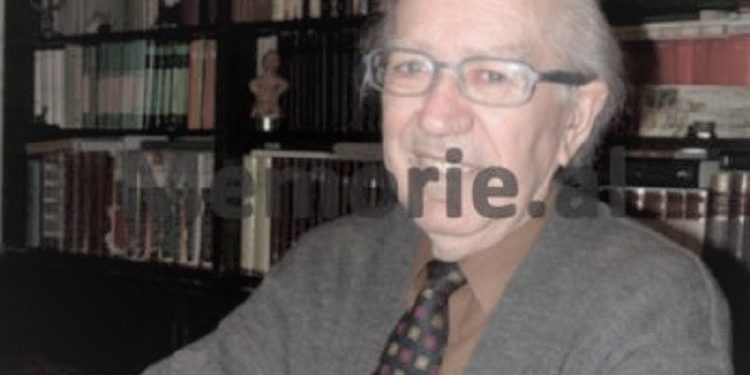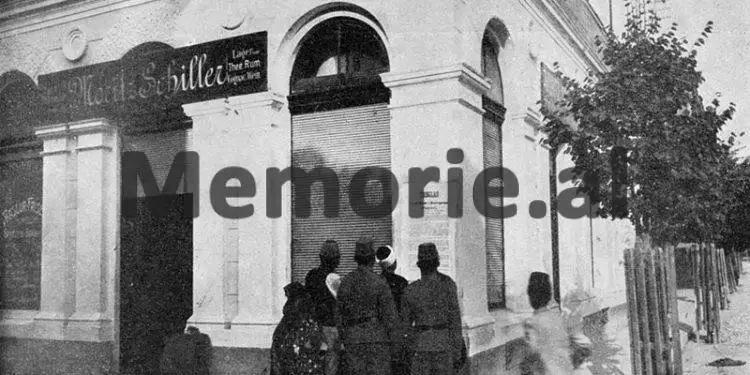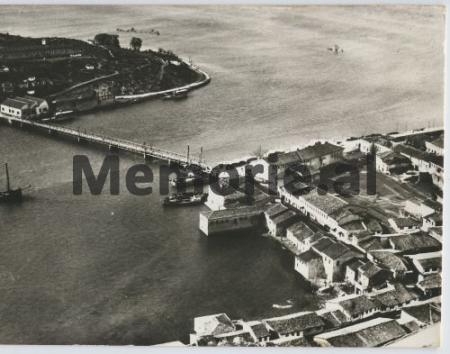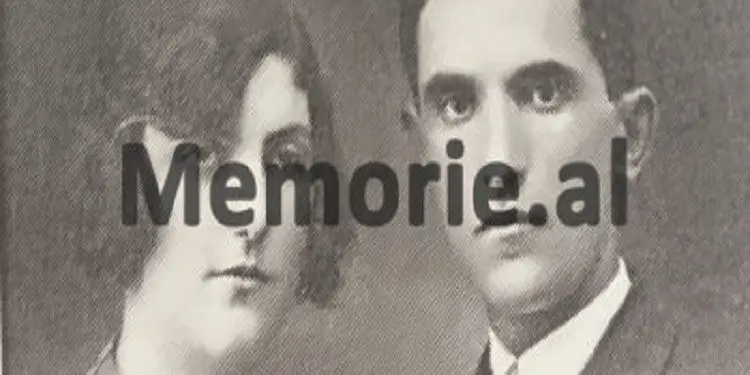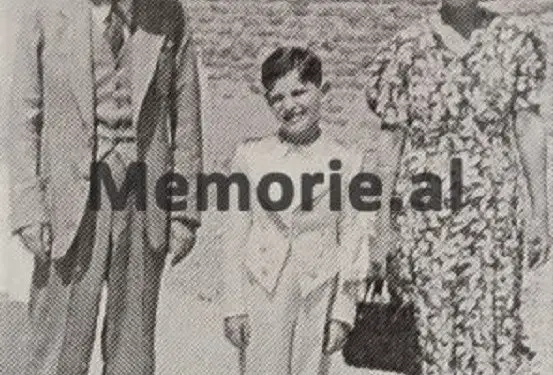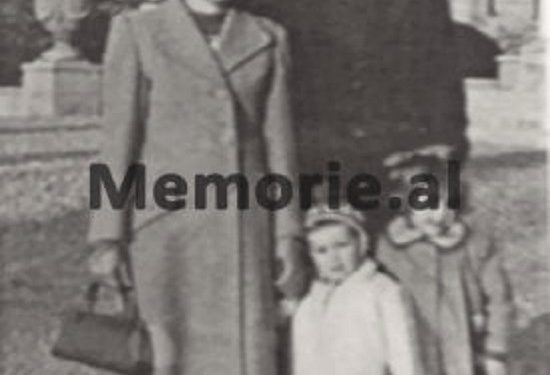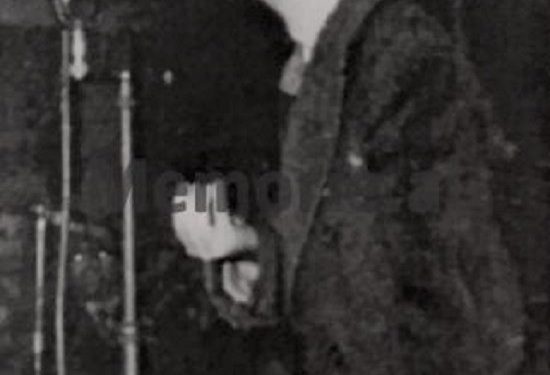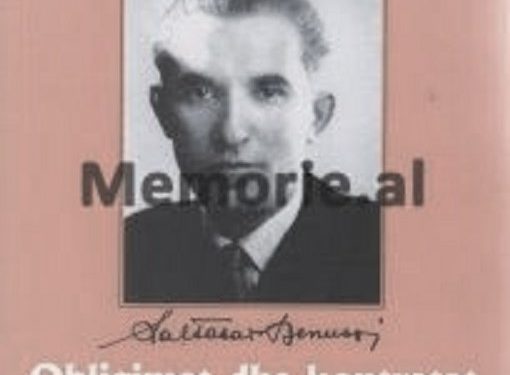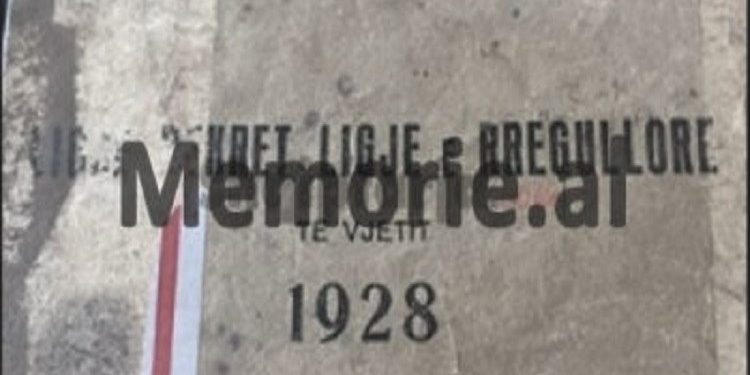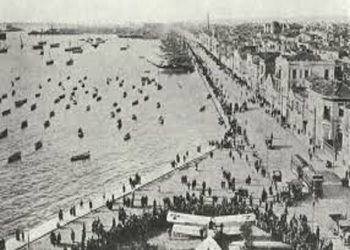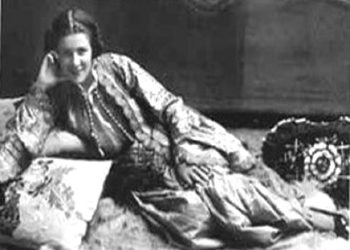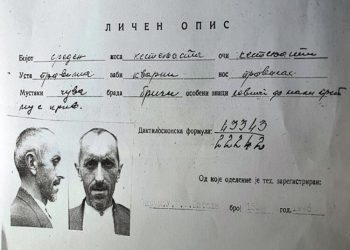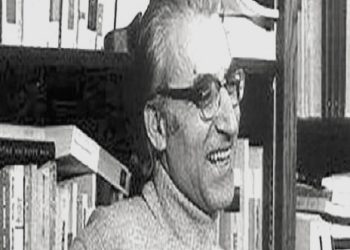Dashnor Kaloçi
Memoreie.al publishes the unknown story of the Benussi family from Shkodra, of Italian origin, where their first, Giorgio Bernardo, came to Shkodra in 1828, called by the Turkish Vizier of the city, where after serving for several years as an Artillery specialist serious near the Vizier of Shkodra, he left and opened a private pharmacy in the city center which is considered the first pharmacy in Albania. How did the life of the suckers of this family go, who after graduating from the most famous universities in Europe, such as Zefi, Baltazari, Gaspëri and Gjushi, returned to Albania and made a name for themselves in the respective fields where they had studied, serving up positions minister, but after the communists came to power, they ended up in prisons and internments, being seized and all their property…?!
At the beginning of 1945, the ordeal of our family began, after the communists who came to power arrested my father, Zefi, who graduated in Law in 1932 in Rome and during the fascist occupation of the country, had held the post for a period of two months. of the Minister of Education. After being held for some time by the investigator, the father was taken to the Special Court held in March-April 1945 in Tirana, along with 63 other former senior Albanian government officials since the time of Ismail Qemali. to the last one under German occupation. After the first blow we suffered as a family, our Benussi tribe was struck again in March 1948, when my uncle Balthazar was arrested, who, like my father Zefi, had graduated in Jurisprudence in Rome in 1924. From 1932, when Uncle Baltazar voluntarily left the Court of Dictatorship of the Zog Monarchy, until 1947, he was not involved in any political activity, but only engaged in the profession of lawyer, becoming one of the best-known lawyers. that Albania had in those years together with his partner Suat Asllani. After sentencing his father, Zefi, to two and a half years in prison, and his uncle, Baltazar, to seven years, the communists seized all the movable and immovable property we had, where only Baltazar was deprived of three luxury villas in the city of Tirana… After that, the families of the Benussi brothers who had remained in a deplorable economic situation suffered another blow from the communist regime of Enver Hoxha in the mid-50s, when our uncle’s son, Gjushi, Gaspër Benussi, sought political asylum outside Albania, who graduated from Sofie in Bullagri and had implemented the construction project of the Rinas Aviation field.
The man who speaks and testifies for the first time for Memorie.al, is 82-year-old Anton Benussi, graduated in Biology-Chemistry and the only son of Zef Benussi, former Minister of Education in 1943, who tells the whole story of his family of Italian origin, from the province of Rovignio d ”Istria, where their first Giorgio Benussi, came and settled in the city of Shkodra in 1828, at the request of the Turkish Vizier of that city. What is the past of the Benussi family from Shkodra of Italian origin and how did they live in Albania? Who were her suckers, where did they graduate and what was their fate during the period of the Zog Monarchy and in the years of the communist regime of Enver Hoxha?
Gjush Benussi, 24-year-old Speaker of Parliament
Gaspër Benussi’s first child was Gjushi (real name Gjergj) who was born in 1894 in the city of Shkodra where their family lived. Gjushi received his first lessons at the Saverian College in the city, where at that time he was working as an Italian language teacher and his father, Gaspër Giorgio Benussi. After graduating from college with very high results, Gjushi was sent and attended high school and then high school in Vienna. In Vienna, John Benussi stayed for eight years and graduated in Business Economics at the University of Vienna. After graduating in 1918, Gjushi returned to his hometown in Shkodra, where he worked in the local administration of that city. In 1920, with the creation of the First Albanian Parliament, Gjushi came to Tirana at the request of some of his political friends from the city of Shkodra and began work as Chief Secretary of Parliament. In this regard, his nephew Anton Benussi, testifies: “In that task our uncle, Gjushi, worked non-stop for 24 years until 1944, when the Parliament of the War period was dissolved. During that period, he perfected his profession and was the first to create the Albanian Stenography. During the years of the Zog Monarchy, Gjushi compiled and published the book “Albanian Stenography” which is the first and only of its kind in Albania. As he was a good professional, even after the end of the War, the communists kept him at work for some time in the Albanian Telegraphic Agency. Then in the autumn of 1945, after the blow that our family suffered with the punishment of my father, Zefi, Gjushi was fired and labeled as “reactionary and sucker of the inverted classes”. At the time he was fired, Gjushi remained in a miserable economic situation, as he also had five children to raise. Forced by financial difficulties, he also lost his house he had in today’s “Block”.
The escape of Gasper Benuss
In 1955, Gjush Benussi and the families of three other brothers Baltazar, Luigji and Zefi, suffered another blow from the communist regime of Enver Hoxha, at that time Gjushi’s eldest son, Gaspëri, fled from Albania. who had graduated in Sofia in Civil Engineering. In this regard, Anton testifies: “Our uncle’s son, Gaspëri, during the years of the War had sympathized and was associated with the anti-fascist movement and taking advantage of that political position, after the end of the War he gained the right to study and went to Sofia, where he graduated with honors in the field of Civil Engineering. In 1950, Gaspëri returned to Albania and the government of that time commissioned him to implement the Rinas Aviation Field project, which he completed with complete success. Following the completion of this major project, the government, to reward him for the work done, gave him permission to go to Sofia to pick up his Bulgarian wife, with whom he had been married since he studied there. But after fleeing to Sofia and reuniting with his family, Gasperi sought political asylum and never returned to Albania. After some time, he left Sofia and settled in the USA where he made a career in his profession. While Gaspëri left for America where he still lives today, his father, Gjushi, lived in Tirana in a difficult economic situation and persecuted by the communist regime. Gjushi died in 1963 and all his work as the founder of the Albanian Stenography was never mentioned during the years of the communist regime “.
Baltazari, the drafter of the Albanian Legislation
The second son of Gaspër Giorgio Benussi, was Baltazari, who was born on January 6, 1897 in the city of Shkodra. Baltazar, like his older brother Gjushi, attended Saverian College in the city of Shkodra and interrupted them to continue the last four years of high school in the city of Pechshi in Hungary. In 1916, after finishing the lessons at that college of Jesus, Balthazar returned to his birthplace in Shkodra. After two years he was called up and mobilized in the Austro-Hungarian army, on the grounds that he had obtained the citizenship of that Empire. In this regard, Benussi testifies: “After completing compulsory military service in the ranks of the army of the Austro-Hungarian Empire, in 1920 Balthazar returned to his birthplace in Shkodra and shortly afterwards his father, Gaspëri, took the announcement that his son Balthazar, had been approved the right to pursue higher studies in the branch of Jurisprudence at the University of Rome. In 1924, Baltazar received the diploma with excellent results and the scientific degree of Doctor of Laws.
How Zefi, Baltazari and Gjushi, who graduated in Italy and Austria, were convicted, as well as the persecution of Luigi, a bacteriologist of European proportions
In this regard, Anton Benussi, testifies: “After graduating in Rome in the branch of Jurisprudence, my uncle, Baltazar Benussi, returned to Albania and in March 1925 he was appointed a member of the First Instance Judicial Corps in the city of Vlora . Where he worked for two years, then he was transferred to the Prefecture of Berat as a prosecutor and at the end of 1926 he was transferred to Tirana where he was appointed Secretary of the Legislative Drafting Commission in the Ministry of Justice. Baltazari stayed in this position for two years, during which time he made a great contribution to the preparation of modern Albanian legislation. He also made a great contribution to the drafting of the Constitution of the Albanian Monarchy of 1928, where together with Thoma Orollogain, Mehdi Frashëri and Agjah Libohova, he was one of its main compilers. Based on his contribution on March 31, 1931, King Zog appointed Balthazar as a member of the Court of Dictatorship (Supreme Court). In that Court, Balthazar did not work for more than a year, and in March 1932 he resigned along with all the other members of the Dictatorship who were against the implementation of an unconstitutional law. From that year until 1947, Baltazar worked in the free profession of lawyer, becoming one of the best known in his profession, together with Suat Asllani, whom he had a partner and worked in a law office. In addition to the profession of lawyer, during those years Baltazari also worked as a legal advisor in some of the most well-known companies that exercised production and commercial activity, such as: “Stamles” Cigarette Factory in Durrës, etc. ”
Balthazari, 7 years in prison
During 1944, Balthazar was arrested by the Germans for helping financially from the Stamles’s coffers some poor families of workers who had left their jobs and become partisans. He was able to escape safe exile from the Germans, only thanks to the intervention of Perikli Spiro, the delegate councilor of the “Stamles” society. In 1947 he was arrested in the city of Berat, accused of agitation and propaganda. He was initially sentenced to 15 years in prison, but after the appeal the Supreme Court reduced it to seven years, but the article on sequestration of property remained valid, for which he was arrested. As a result, Baltazar was seized from three luxury villas in Tirana and his family was forcibly evicted from the house with only body clothes and expelled from Tirana to Shkodra. Baltazar served his full sentence in Burrel prison and then spent four years in exile in Kuç of Kurvelesh. He died in 1982 in the city of Shkodra, after being allowed to sell cigarettes at a hardware store for 12 years to make a living. One of the three main works left by Baltazari in the field of Justice, was the Commentator of the Civil Code “Objects, possession and its modifications”, which was republished again in 1995 and has found a great use in Albanian jurisprudence.
Conviction of Zefi, former Minister of Education
Gaspër’s third son, Giorgio Benuss, was Zefi, who was born in 1900 in the city of Shkodra. Zefi, like his two brothers, Gjushi and Baltazari, after being educated at the Saverian College in the city of Shkodra, went to Italy where for five years he attended the University of Rome at the Faculty of Law. In 1932 Zefi received the diploma with maximum results being considered as one of the most prepared students of that constellation, which is marked by the rector of that university in his diploma. After graduation, Zef Benussi returned to Albania and the then Ministry of Justice appointed him as a member of the Court of First Instance in the city of Korça. His son Anton Benussi, testifies: “After working for several years in the city of Korça, father Zefi moved to the cities of Tirana and Shkodra where, in addition to being a judge, he also worked as a prosecutor. Zefi served in those positions until 1943, when he was called to Tirana, where he was appointed Minister of Education and Culture. In that ministerial post the father did not work for more than two months. He switched to his profession, dealing with law, which he continued until the end of the War. In 1945, when arrests began for many of the former senior officials of previous governments, Zefi’s father was also arrested for holding the post of Minister of Education in 1943. After that he appeared in the Special Court, which took place in March-April 1945, and since he was not implicated in any activity deemed hostile by the Communists, he was sentenced to only five years in prison. After the punishment of my father, we also seized the property we had in Tirana (land and house), my mother and I were forced to go to the city of Shkodra to our relatives. The father did only two years in prison and when he came out in 1947 he worked as a manual laborer. He was then interned for another four years in Shtyllas of Fier and Kuç of Kurvelesh. After all the internment was over, his father returned to the city of Shkodra and in 1962, when the communist regime made some small concessions to those he considered “enemies of the people and reactionaries”, Zefi was left to work as a lawyer in the city Lezha. In this profession for which Zefi had received his doctorate in Rome, he failed to work for more than three or four years, as in 1965 he passed away at the age of 65, completely tired and exhausted from the stresses of a life full of suffering and vicissitudes that had passed. “Throughout the communist regime, our family was considered reactionary and suffered from the class war,” testifies Anton Benussi about his father Zefi, who is also known for writing the book “Albanian Customary Law”. Zef Benuss’s family still lives in the city of Shkodra.
Luigji, graduated in Medicine in Rome
The fourth son of Gaspër Giorgio Benussi, was Luigji, who was born in 1903 in the city of Shkodra. Luigji, like the other three brothers: Gjushi, Baltazari and Zefi, was educated at the Saverian College in the city of Shkodra. In 1925 Louis acquired a right to study to pursue higher studies at the Faculty of Medicine at the University of Rome. Luigi won the silver medal in a competition attended by thousands of students and as a reward he was awarded the right to study at his request, to the Faculty of Medicine at the University of Rome. Regarding the medical career of Luigi Benuss, his nephew, Antoni, testifies: “Uncle Luigi graduated from the Faculty of Medicine in Rome with excellent results in 1931 and in July of that year he graduated. The thesis he defended his doctorate was: “Changing blood groups A.B.O. of husband and wife as a biological cause of abortions”. After graduating, Luigji returned to Albania and was appointed as a doctor at the Military Hospital of Tirana. After a year he went back to Italy and continued his postgraduate studies and in 1934 he graduated from the University of Perugia, where he specialized as a surgeon. In addition to working at the Tirana Military Hospital, Uncle Luigji devoted himself to research studies. During the years 1935-’36, Luigi went back to Italy where he studied microbiology at the Institute of Hygiene in Rome.
European renowned bacteriologist
“After some specializations in Italy, Uncle Luigi was engaged at the Institute of Microbiology at the Royal University of Rome, where he also worked as an assistant professor with medical students. After that, in 1935, Luigi went to Belgium where he graduated as a doctor at the “Prince Leopold” Institute, in the city of Antwerp, he specialized in pathology. After specializing there, in 1938, Luigi went to the University of Paris, where he specialized as a dermatologist at the clinic of skin and venereal diseases of the hospital “Luos”. Later, Luigji graduated as a “Venereologist and Syphilis” and the third degree he received was for “Therapy and laboratory diagnosis of dermato-venereal diseases”. After many years of scientific research, in 1940 Louis invented the gasometric method for measuring azotemia in the blood by simple means, and in the 1960s that method became known in the world medical literature as the “Benuss Gasometric Method”. After all the specializations he did, Luigi had many offers to work in Medical Research Institutes in Italy, France, Belgium, Spain, England and even the USA and Argentina. But Luigji refused to go to any of these countries that asked for him and returned to Albania, where he gave his great contribution to the establishment of the Microbiological Laboratory and the Faculty of Medicine in Tirana, where he worked as a lecturer. During all that time, even though he was one of the best specialists in Microbiology, Luigji was looked at differently because of his family biography, the two brothers had been condemned as “enemies of the people”. Luigji was repeatedly prosecuted by the State Security for being convicted, accusing him that “the vaccines he had invented were inaccurate and that patients had died from them.” Although he specialized in the most prestigious institutes in Europe, due to his family biography, in 1960 in Tirana, Luigj was awarded the only scientific degree “Candidate of Medical Sciences”.
The unknown story of the Benussi family originating from Rovignio d’Istria in Italy
The early origin of the Shkodra family, Benussi, is from an Italian province near the city of Trieste called Rovignio d’Istria, which at that time was under the Austro-Hungarian Empire and today is located in the territory of Croatia. The Italian province where the Benussi family from Shkodra originated from, came under the administration of the former Yugoslavia after the end of the Second World War and after its dissolution in the early 1990s, it came under the jurisdiction of Croatia. in which it is still today. The first of this family is called Giorgio Bernardo Benussi and he was born in this province of Italy in 1801. Giorgio graduated from the Naval Academy of Trieste in 1823 and worked for several years as a sailor with the Italian Navy in the specialty of the long journeys for which he had graduated. After serving for several years near that navy, in 1828, a request came to him from the Turkish Vizier of Shkodra, to come to that city as a specialist in heavy artillery. Giorgio Bernardo Benussi, responded positively to the invitation of the Vizier of Shkodra and in September 1828 he left his hometown Trieste and came to the city of Shkodra together with his wife Teresa, two daughters Antonian and Giovana. From various oral testimonies inherited in several generations, it is said that the Turkish Vizier of Shkodra gave a warm welcome to Giorgio Benuss and erected him a good house where the Perash neighborhood is today, in the part inhabited by Catholics. Also, regarding the arrival of Giorgio in the city of Shkodra, there is another version, where it is said that the invitation from the Vizier of Shkodra was made after he had come to that city as a visitor, where he met the Vizier personally. After serving for several years as a specialist in heavy artillery at the Vizier of Shkodra, Giorgio Benussi left and opened a private pharmacy in the city center, which is said to have been the first pharmacy to open in Shkodra. Also, in addition to his pharmaceutical trade activity, which was mainly carried out by his Italian wife, Terezina, Giorgio opened some paid Italian language courses, where the children of the aristocracy of the city of Shkodra, who were preparing to study in Italy, studied mainly. and other European countries. In 1850, while Giorgio Bernardo Benussi lived in the city of Shkodra, a child was born to him who was named Gaspër. Giorgio lived there until 1869 and after his death his son Gaspëri took over the pharmaceutical activity, who was educated at the Saverian College of the city of Shkodra which was very close to their house. After graduating from Saverian College in the city of Shkodra, Gaspër Giorgio Benussi went to the city of Triste to meet his father’s family, where he studied and graduated as a teacher. After graduation he returned to the city of Shkodra and for many years worked as a lecturer at the Saverian College, where he taught Italian. From the last years of his career as a lecturer at that College, Gaspëri was called by the Austro-Hungarian Consulate located in the city of Shkodra and for several years worked there as its Chief Secretary. During his career as a lecturer of Italian language at Saverian College, Gaspëri was also involved in textbook writing and published many journalistic articles in the press of the time. His scientific work in pedagogy consists in the publication of two Albanian primers, a method for learning the Italian language, which was started by his father Giorgio, as well as the book “The Albanian we learned in his own language”. Gaspër Giorgio Benussi lived until 1931 and died in the city of Tirana at the age of 81. His burial took place in the city of Shkodra near the family cemetery, where his father Giorgio was previously buried. Even today in the city of Shkodra there are many people who remember the magnificent reception given to the procession with the body of Gasper at the entrance of the neighborhood of Baçallëk, where the whole parish of the city had come out and the spiritual band that accompanied him with funeral marches until in the cemetery of Rrmaj. Gaspër Giorgio Benussi with his wife Çeçilia Çekja (from the famous Shkodra tribe of Filip Çekaj) left five children: a daughter named Tereza, and four sons, Gjushi (born in 1894), Baltazar (1897) Zefin (1900) and Luigjin (born 1903). Gapsëri’s eldest daughter, Tereza, did not get married, while the other four boys, after being educated at the Universities of Italy and Austria, got married and started their families in the city of Shkodra and Tirana, where the children and grandchildren of their granddaughters./Memorie.al





